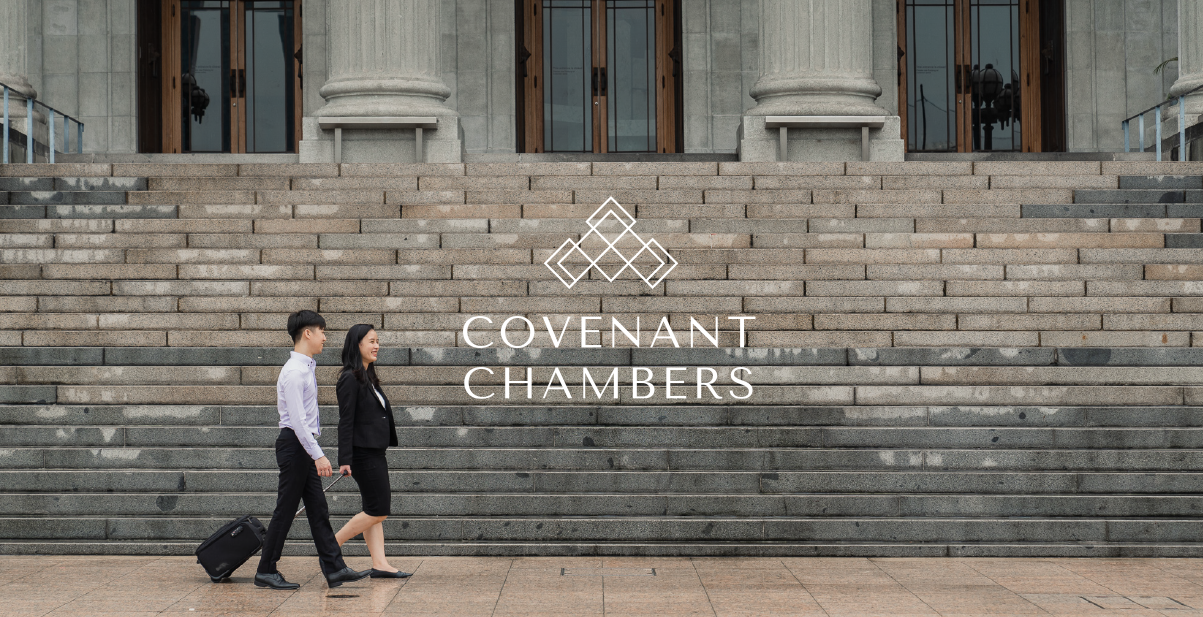Competition Appeals Board slashes financial penalty imposed by the Competition Consumer Commission of Singapore by more than $1 million
Article by Charis Wong.
In Re Market-Sharing and Price-Fixing in Sale and Distribution of Fresh Chicken Products in Singapore: Gold Chic Poultry Supply Pte Ltd and other [2020] SGCAB 1, the Competition Appeal Board (“CAB”) partially allowed the appellants’ appeal against liability and quantum for infringing section 34 of the Competition Act.
Our Lee Ee Yang, Ronald JJ Wong, Wilbur Lua and Charis Wong successfully represented the second appellants, Gold Chic Poultry Supply Pte Ltd and Hua Kun Food Industry Pte Ltd in the appeal, which resulted in the reduction of the penalty payable by our clients by more than $1 million.
Background
In its Infringement Decision dated 12 September 2018, the Competition Consumer Commission of Singapore (“CCCS”) found that Gold Chic Poultry Supply Pte Ltd and Hua Kun Food Industry Pte Ltd (collectively, “GCHK”) and other fresh chicken distributors had infringed section 34 of the Competition Act (Cap. 50B) (the “Act”) by participating in anti-competitive agreements and/or concerted practices with various other fresh chicken distributors to:
not compete for one another’s customers in the market for the supply of fresh chicken products in Singapore (the “Non-Aggression Pact”); and
coordinate the amount and timing of price increases of fresh chicken products in Singapore (the “Price Discussions”) between 19 September 2007 and 13 August 2014.
CCCS had imposed a penalty of approximately $1.8 million on GCHK. GCHK appealed against liability and the quantum of penalty, and made inter alia the following arguments:
CCCS had failed to produce precise and consistent evidence that GCHK had participated in the Non-Aggression Pact and/or the Price Discussions; and
even if liability is imposed, the amount of penalty payable should be reduced substantially. GCHK had, at most, played a mere passive or follower role, the evidence does not support the existence of a single and continuing infringement, and the CCCS had applied the wrong set of penalty guidelines to calculate the amount of penalty to be imposed.
Outcome of GCHK’s Appeal
Covenant Chambers LLC successfully represented GCHK to partially overturn CCCS’s finding on liability, resulting in a reduction in the quantum of the penalty payable to approximately $500,000.
CAB overturned CCCS’ finding of the Non-Aggression Pact (“NAP”)
CCCS’s case against GCHK was founded primarily on the evidence given on behalf of four fresh chicken distributors (the “Non-Parties”), who had admitted to the existence of and their respective participations in the NAP and the Price Discussions, and identified GCHK’s representative as having been present in various meetings where the Price Discussions and/or NAP were discussed. Each of these Non-Parties had accepted liability for having infringed section 34 of the Act by reason of the NAP and the Price Discussions, and paid the penalties imposed.
GCHK argued that CCCS had failed to adduce any evidence, much less precise and consistent evidence, that GCHK was involved in any NAP. In particular, the Non-Parties had not specifically identified GCHK’s representatives as having attended the meetings where the NAP was allegedly discussed.
In its decision, CAB opined that CCCS should not have approached the evidence for the NAP and the Price Discussions in a general broad-brush manner, as CAB should be clear what evidence would support which distinct infringement specifically. After hearing the evidence of the Non-Parties’ representatives, CAB found that it was not clear from their evidence whether the NAP was specifically discussed during the meetings attended by GCHK’s representative. Accordingly, CAB found that CCCS had failed to discharge its burden to show that the evidence pointed specifically to GCHK’s participation in the NAP, and overturned CCCS’ finding that GCHK had participated in the NAP.
CAB upheld CCCS’s finding of the Price Discussions (“PDs”)
The CAB declined to overturn CCCS’ findings on the PDs, finding that parties had participated in the PDs to the extent that there was tacit and express concertation amongst the appellants and the Non-Parties in setting the prices of fresh chicken products in Singapore. This took the form of exchanges of price information and/or price signalling.
However, the CAB also found, contrary to the assertions of the CCCS in its Infringement Decision, that there was there was no price movements of definite quantum on set dates by the appellants.
CAB reduced the amount of penalty payable
First, as CAB found that there was insufficient evidence to show that GCHK had participated in the NAP, there was no single continuing infringement present to justify the penalty amount imposed by CCCS. On this basis, the CAB reduced the amount of penalty payable by GCHK.
Second, CAB accepted GCHK’s submission that a mere passive or follower role is a mitigating factor. CAB found that GCHK was a passive participant in the PDs, and reduced the quantum of penalty payable accordingly.
Third, CAB agreed with GCHK that the relevant turnover which was used to calculate the quantum of penalty payable should be based on the CCCS Guidelines on the Appropriate Amount of Penalty in Competition Cases 2016 (“2016 PG”) instead of the CCS Guidelines on the Appropriate Amount of Penalty 2007 (“2007 PG”). CAB accepted GCHK’s submission that the 2016 PG should apply because the CCCS had issued a Supplementary Proposed Infringement Decision dated 21 December 2017 (“SPID”), which it had treated as a fresh proposed infringement decision, after the 2016 PG came into force.
Concluding remarks
CAB’s decision in [2020] SGCAB 1 represents the first case in Singapore on which an appeal against CCCS’ decision on liability was allowed (albeit partially). CAB’s decision is welcome as it provides helpful clarification on various areas of competition law, which is still in its relatively early stages of development in Singapore.

